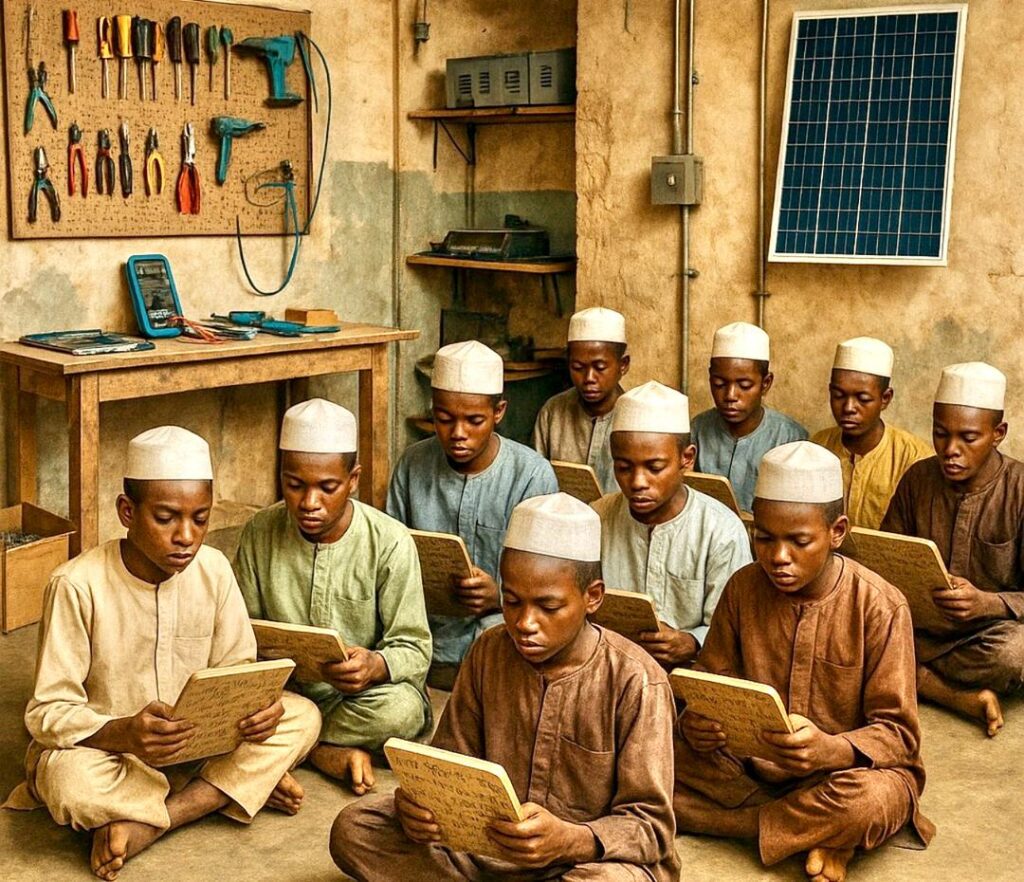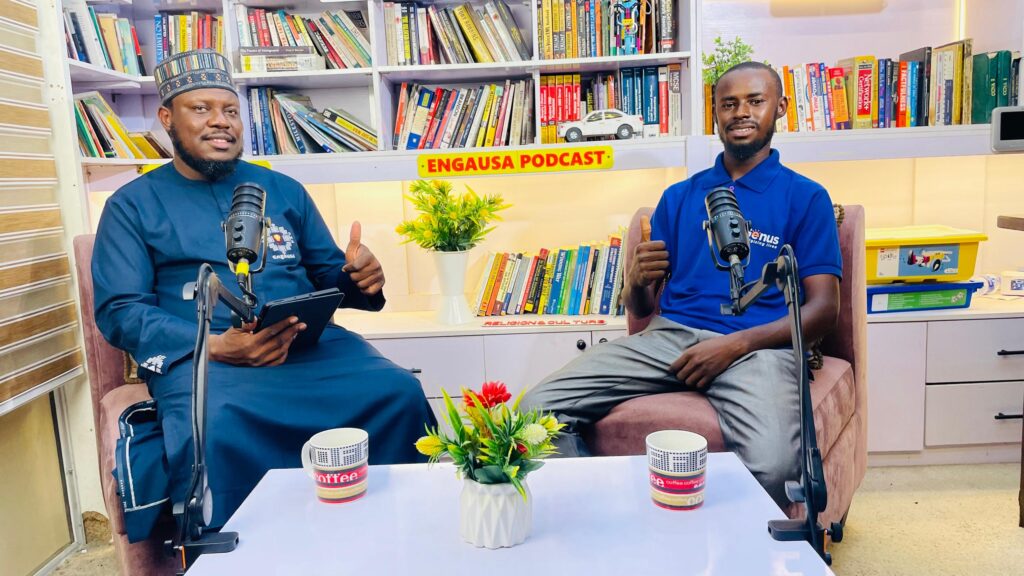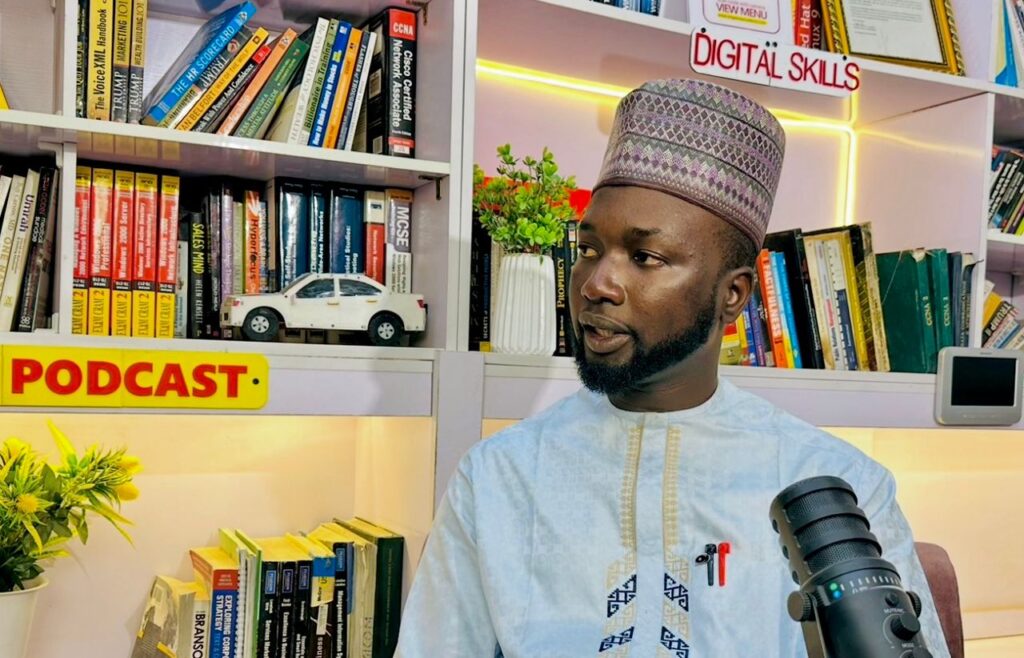Introduction
Revitalizing the Almajiri System means giving new life to the traditional Almajiri education system by integrating Qur’anic learning with modern technical and vocational skills — restoring dignity, purpose, and opportunity for every learner.
A Story of Transformation and Hope
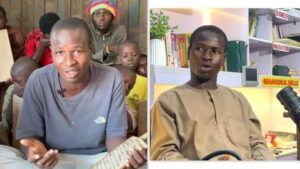
In this week’s episode of the ENGAUSA Podcast, host Engr. Mustapha Habu Ringim engaged in a captivating conversation with Aminu Armaya’u Sulaiman, one of the earliest trainees of ENGAUSA Global Tech Hub; and a shining example of what becomes possible when opportunity meets determination.
Aminu began his journey as an Almajiri student, struggling through the limitations that have long defined the traditional Almajiri system. Yet, within him burned a quiet determination to build on his Qur’anic foundation and embrace new opportunities through skills. When he joined ENGAUSA as part of its first cohort of trainees, that determination finally found direction.
Integrating Qur’anic Learning with Technical Skills
Aminu and his peers went through intensive, hands-on training in Solar Installation, CCTV Installation, Intercom Systems, E-Attendance and Access Control Devices, Creativity, and Electronics — skills that opened new doors and reshaped their vision of what an Almajiri could become.
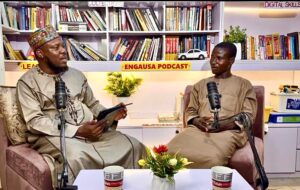
Aminu started small, working on basic electrical wiring and solar installation. Now, through ENGAUSA’s mentorship and the dedicated support of the ENGAUSA Skills Development Foundation (ESDF), he has grown into a successful solar entrepreneur, designing and building solar generators for clients. His business has expanded to the point where he now employs others in his community — creating a ripple effect of empowerment.
That’s why the ENGAUSA model enables Almajiri students to engage in technical skills acquisition without sacrificing their Qur’anic education. Through our inclusive, mother-tongue-based Skillnovation approach, these learners are being transformed from street beggars into skilled professionals, entrepreneurs, and innovators.
This inspiring story of Aminu Armaya’u Sulaiman reflects how the ENGAUSA Model is integrating the traditional Almajiri system with modern technical skills acquisition — blending faith-based learning with practical knowledge that empowers students to build sustainable livelihoods.
Rewriting the Almajiri Narrative
This transformation is not just about one individual’s success. It represents a paradigm shift in how society perceives and nurtures Almajiri students.
For decades, discussions around the Almajiri system have centered on its problems — poverty, neglect, and marginalization. Yet, ENGAUSA Global Tech Hub, working hand in hand with the ENGAUSA Skills Development Foundation (ESDF), is rewriting that narrative by focusing on skills, inclusion, and empowerment.
Expanding Impact Across Northern Nigeria

Across Northern Nigeria, ENGAUSA’s impact continues to grow. Together with ESDF, the hub has trained thousands of Almajiri students, school-dropouts and out-of-school youth, equipping them with industry-relevant skills in graphics design, video editing, solar energy, smartphone repair, and other digital literacy-based skills.
These students are no longer defined by their limitations, they are becoming innovators, freelancers, and job creators.
Restoring Confidence and Dignity
But beyond skills, ENGAUSA and ESDF offer something deeper. They restore confidence to those who were once overlooked, providing a constructive alternative to teeming youth restiveness and showing that talent knows no social class and potential is universal.
Through mother-tongue-based learning, complex technical concepts become understandable, allowing learners to build from familiarity and excel at their own pace.
Integration, Not Exclusion, is the Way Forward
The way forward for the Almajiri system lies in this model — integration, not exclusion.
By merging traditional Islamic education with modern skill acquisition, Almajiri students can evolve into a generation that contributes intellectually, economically, and socially to the development of the nation.

At ENGAUSA Global Tech Hub and its sister organization, the ENGAUSA Skills Development Foundation (ESDF), this mission has already taken shape over the past decade. Both remain deeply committed to expanding opportunities for Almajiris and out-of-school youth by ensuring that no one is left behind in the digital and technological revolution.
From Survival to Significance
Every Almajiri deserves a chance to learn, create, and lead. With the right skills, mentorship, and moral foundation, they can move from the streets to the workspace and from survival to significance.
At ENGAUSA and ESDF, we are not just teaching skills.
We are transforming lives and building the next generation of innovators, dreamers, and nation builders.
About ENGAUSA Skills Development Foundation (ESDF)
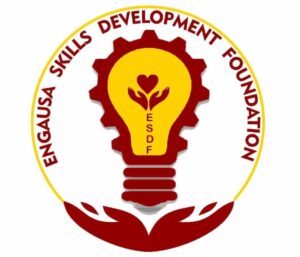
The ENGAUSA Skills Development Foundation (ESDF) is the non-profit arm of ENGAUSA Global Tech Hub, dedicated to inclusive education and community empowerment.
ESDF, in collaboration with philanthropists and other public and private stakeholders, provides scholarships, startup kits, and mentorship programs for vulnerable groups such as Almajiri students, out-of-school youth, excluded women, people with special abilities, and those who are “Not in Education, Employment, or Training” (NEET).
Through its initiatives in mother-tongue-based TVET, digital literacy, and entrepreneurship, ESDF continues to redefine how inclusion, innovation, and empowerment intersect for sustainable national development.
For more information:
Website: www.EngausaHub.com.ng
Foundation: foundation.engausahub.com.ng
Phone (WhatsApp & Telegram): 07038224643
Email: [email protected]
